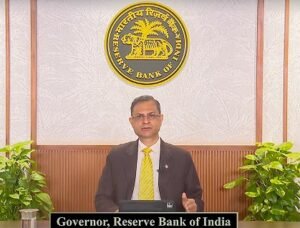Last Updated on June 15, 2025 10:22 am by BIZNAMA NEWS

Sudhir Kumar / New Delhi
In a landmark move aimed at accelerating India’s scientific and technological progress, Union Science and Technology Minister Dr. Jitendra Singh today unveiled a sweeping set of policy reforms designed to enhance the Ease of Innovation and Ease of Doing Research across the country.
Addressing a press conference in the capital, Dr. Singh emphasized the government’s renewed commitment to empowering India’s scientific community.
“This is a reform built on trust—trust in our scientists, scholars, and research leaders. The message from the Modi Government is clear: we trust you, we value your work, and we are committed to supporting innovation at every level,” he stated.
Among the most significant changes is the delegation of procurement powers to the heads of research and academic institutions, who can now independently approve Global Tender Enquiries up to ₹200 crore—a responsibility previously restricted to central authorities.
The government has also introduced key amendments to the General Financial Rules (GFR) to simplify and expedite funding procedures for research-related purchases:
- The ceiling for direct purchases has been increased from ₹1 lakh to ₹2 lakh.
- For purchases via departmental committees, the range has been expanded from ₹1–10 lakh to ₹2–25 lakh.
- Similarly, limits for limited tender enquiries and advertised tenders have been revised upwards from ₹50 lakh to ₹1 crore.
These changes are expected to reduce red tape, empower institutions, and foster a more agile research environment—one that keeps pace with global standards and scientific needs.
Dr. Singh also highlighted the Modi government’s bold decisions over the last decade that have shaped India’s scientific landscape. He noted that the opening of India’s space sector to private players and the recent liberalization in the nuclear sector have laid the foundation for a robust science-driven economy.
“In the coming years, the space economy will be a key pillar of India’s growth story,” he said. “What once seemed unthinkable—private sector participation in space and nuclear technology—is now a reality. These reforms are a continuation of that forward-thinking vision.”
The announcement has been warmly welcomed by researchers, start-ups, and academic institutions, many of whom have long called for such autonomy and support to drive innovation from the grassroots to the global stage.
With this bold policy shift, India signals not just an intent—but a structured commitment—to becoming a global hub for research, innovation, and technology-driven growth.






